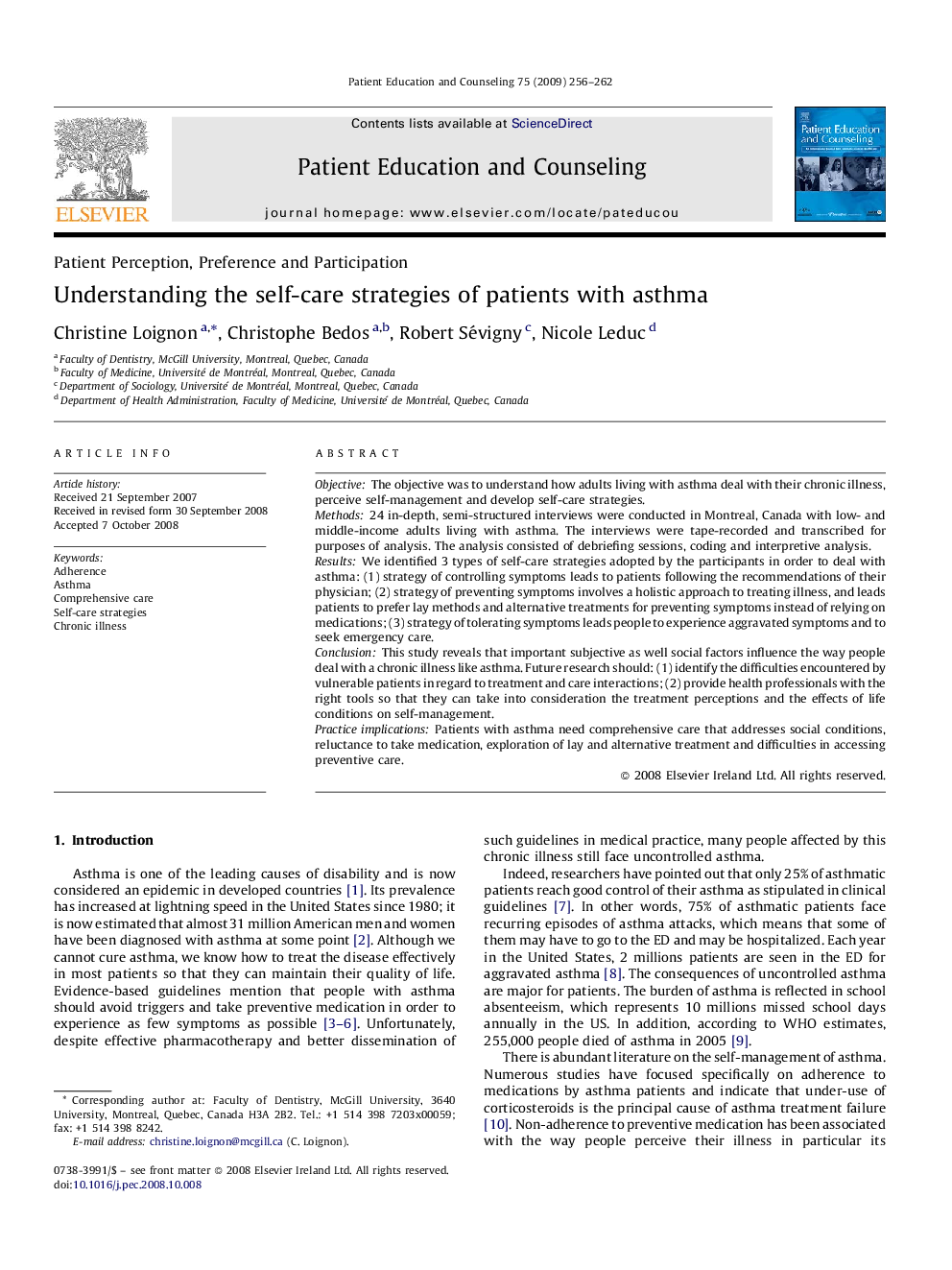| Article ID | Journal | Published Year | Pages | File Type |
|---|---|---|---|---|
| 3816375 | Patient Education and Counseling | 2009 | 7 Pages |
ObjectiveThe objective was to understand how adults living with asthma deal with their chronic illness, perceive self-management and develop self-care strategies.Methods24 in-depth, semi-structured interviews were conducted in Montreal, Canada with low- and middle-income adults living with asthma. The interviews were tape-recorded and transcribed for purposes of analysis. The analysis consisted of debriefing sessions, coding and interpretive analysis.ResultsWe identified 3 types of self-care strategies adopted by the participants in order to deal with asthma: (1) strategy of controlling symptoms leads to patients following the recommendations of their physician; (2) strategy of preventing symptoms involves a holistic approach to treating illness, and leads patients to prefer lay methods and alternative treatments for preventing symptoms instead of relying on medications; (3) strategy of tolerating symptoms leads people to experience aggravated symptoms and to seek emergency care.ConclusionThis study reveals that important subjective as well social factors influence the way people deal with a chronic illness like asthma. Future research should: (1) identify the difficulties encountered by vulnerable patients in regard to treatment and care interactions; (2) provide health professionals with the right tools so that they can take into consideration the treatment perceptions and the effects of life conditions on self-management.Practice implicationsPatients with asthma need comprehensive care that addresses social conditions, reluctance to take medication, exploration of lay and alternative treatment and difficulties in accessing preventive care.
